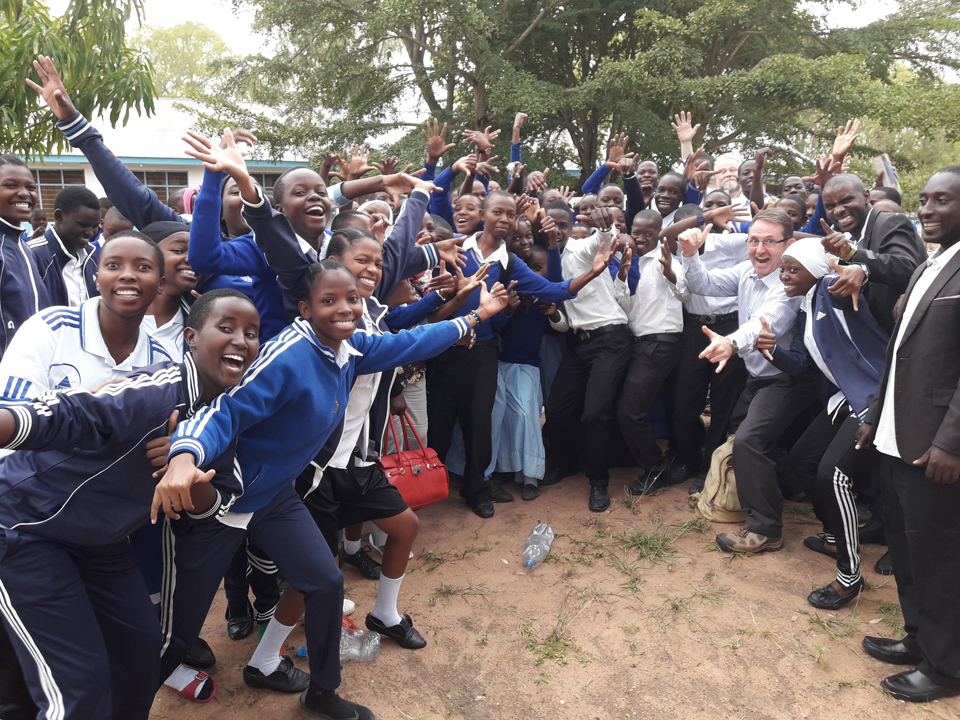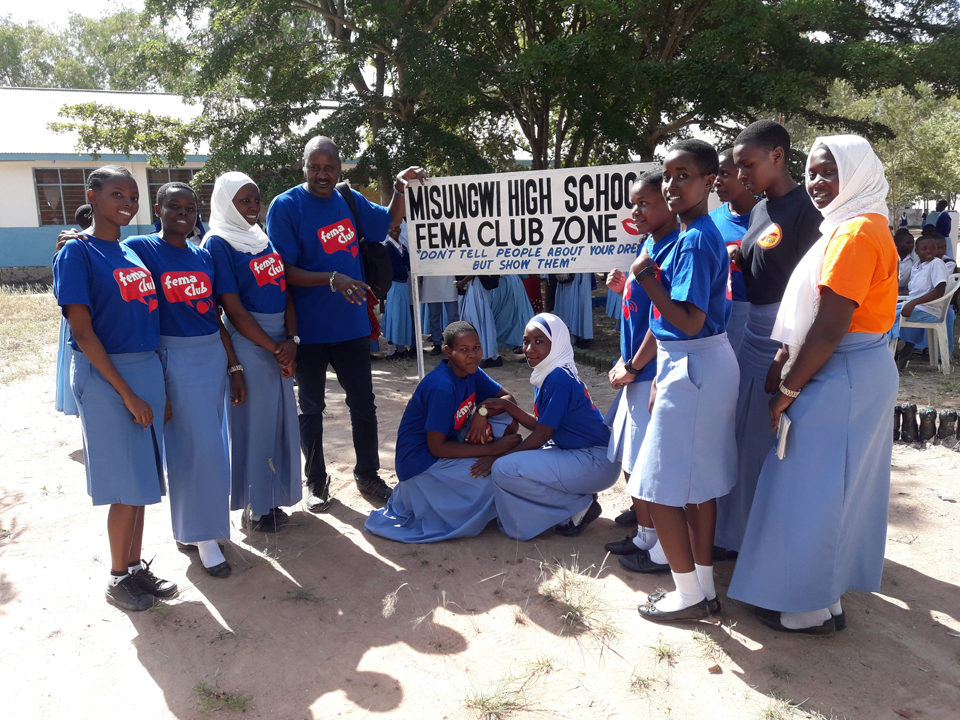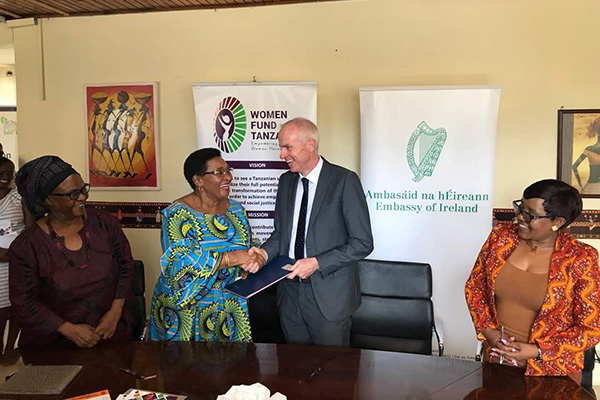Girl Power and better health care in Misungwi, Tanzania
News
08 November 2018
Irish Aid supports Femina Hip, a local organisation challenging social norms that accept child marriage and teenage pregnancies by running “girl power” clubs in Misungwi attended by more than 2000 teenage girls.
In Tanzania, women and girls disproportionately face some significant health challenges. There has been little improvement in the past ten years in the number of deaths among girls and women during pregnancy and childbirth. Just over half of all deliveries take place in a health facility, and only about 50% of pregnant women receive the required antenatal care prior to delivery. In addition, 27% of girls have their first child as teenagers, aged between 15 and 19 years old.
Almost half of all women in the Mwanza region, near Lake Victoria, have experienced violence and nearly one in five have suffered sexual violence at the hands of their husbands or partners. Men are usually the head of the household, and gender-based violence (GBV) is commonly used to assert control over resources, often to the detriment of women and children. Women have little to no control over planning their family.
The Misungwi district in Mwanza has a population of 351,000 people over half of whom are under 18 years of age. Teenage pregnancies are very high risk and frequently require specialised obstetric care, which is rarely in rural villages in Misungwi district. Delays in seeking healthcare at facilities are a key contributor to maternal deaths. Access to local health care services and referral into the Health System is key to improving community based health care.
Together with local organisations, Ireland provides comprehensive support to improve the health of women and children. Irish Aid is supporting the recruitment of 500 trained Community Health Workers (CHWs) to work through local organisations (Benjamin Mkapa Foundation and Amref Health Africa) and UNICEF in isolated villages of Tanzania. These health workers are based in the local communities, visiting families and providing health education. The services they provide include counselling on nutrition, caring for children, and education about good hygiene practices, the importance of sleeping under mosquito nets and measures to prevent other diseases including HIV/AIDS and diet related illness. They identify high risk pregnancies, support pre- and post-natal care, provide basic treatments for common diseases such as malaria and pneumonia in children and serve at the frontline of responses to health emergencies such as cholera outbreaks and Ebola preparedness. All these measures increase health care and welfare standards within the local communities, where women and girls can most easily access the advice and support they need.

Irish Aid also supports Femina Hip, a local organisation that challenges social norms that accept child marriage and teenage pregnancies, raising awareness of alternative life paths. Femina Hip now runs “girl power” clubs in Misungwi attended by more than 2000 teenage girls. The clubs meet weekly to support each other, learn about sexual and reproductive health, and discuss how to be economically independent while staying in school. The Clubs are supported through a weekly radio show that features topical issues for teenagers, rejects gender based violence, promotes sexual and reproductive health and girl entrepreneurship.
Gender based violence affects women of all ages in Tanzania. Kivulini, a women’s rights organisation, receives Irish Aid support to prevent gender based violence in Misungwi. In Swahili, “Kivulini” means “in the shade”, implying a place of safety where people can meet to discuss and seek solutions to their problems. Kivulini holds community dialogues, bringing together local leaders, teachers, police, social workers and the whole community to address gender-based violence. Results so far are promising; local police have seen an increase in the number of GBV cases reported, and community leaders report a reduction in the acceptance of violence in village communities. Kivulini also offers free legal consultation to GBV survivors, exploring their rights and any opportunities for redress.
Women’s empowerment and gender equality are at the heart of Irish Aid’s country strategy for Tanzania in 2017-2021. Our commitment to a fairer and more just world includes delivery of improved reproductive health services, and more targeted community level initiatives aimed at protecting women and girls from GBV. The strategy can be read in full here


